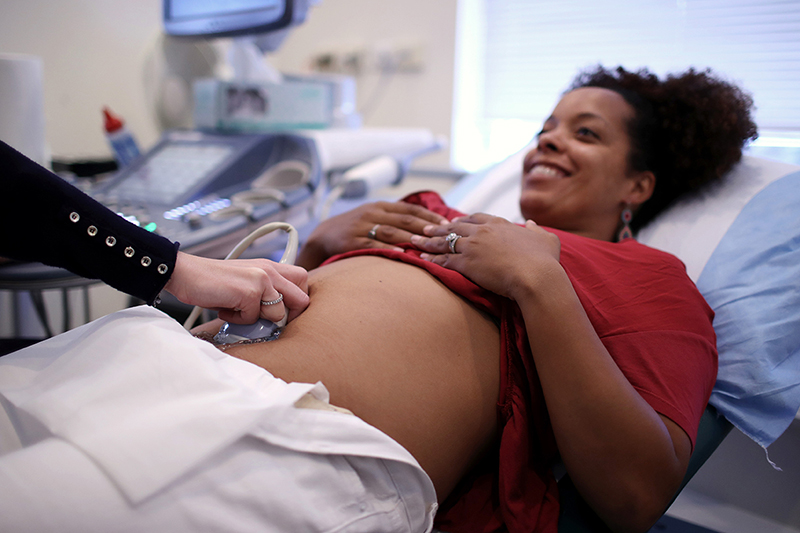Background
 According to the Centers for Disease Control and Prevention, 36.5% of U.S. women ages 20 to 39 have obesity, defined as having a body mass index (BMI) over 30.1
According to the Centers for Disease Control and Prevention, 36.5% of U.S. women ages 20 to 39 have obesity, defined as having a body mass index (BMI) over 30.1
Obesity is associated with increased risks to the woman (during pregnancy, labor, and delivery), to the fetus (in the womb), and, in the long term, to the child. Some risks to the woman include preeclampsia, gestational diabetes, and blood clots and wound rupture during delivery. Plus-size pregnant women are also more likely to require cesarean delivery. Their children are at increased risk for certain congenital anomalies, metabolic syndrome, asthma, and developmental disorders.
For these reasons, plus-size pregnancies require close monitoring and effective, respectful communication between women and healthcare providers, who treat them as partners. However, research shows that many healthcare providers may hold implicit bias against plus-size women. Research also shows that this bias may result in delays in diagnosis and treatment from providers spending less time and developing less of a connection with plus-size women. In addition, plus-size pregnant women may feel stigmatized by their providers and may delay or forgo care.
Pregnancy for Every Body Initiative
The Pregnancy for Every Body Initiative educates plus-size women and their healthcare providers about the importance of open and nonjudgmental conversations about weight when making plans for a healthy pregnancy.
The initiative emphasizes that plus-size pregnant women and their obstetric providers are partners in healthy pregnancies. By working with their provider to create a pregnancy plan, plus-size pregnant women can take specific steps to achieve the best possible pregnancy outcome. The initiative also aims to increase providers’ awareness of unconscious biases about plus-size people and of current American College of Obstetricians and Gynecologists guidelines and resources for providing care to plus-size pregnant women.
Pregnancy for Every Body emphasizes that BMI is only one component in a comprehensive healthy pregnancy plan, equally important as past and current health, family history, lifestyle, and other factors. The initiative aims to remind providers that working together means being respectful and taking the entire person into account, and to remind pregnant women that a healthy pregnancy is possible at any size.


 BACK TO TOP
BACK TO TOP